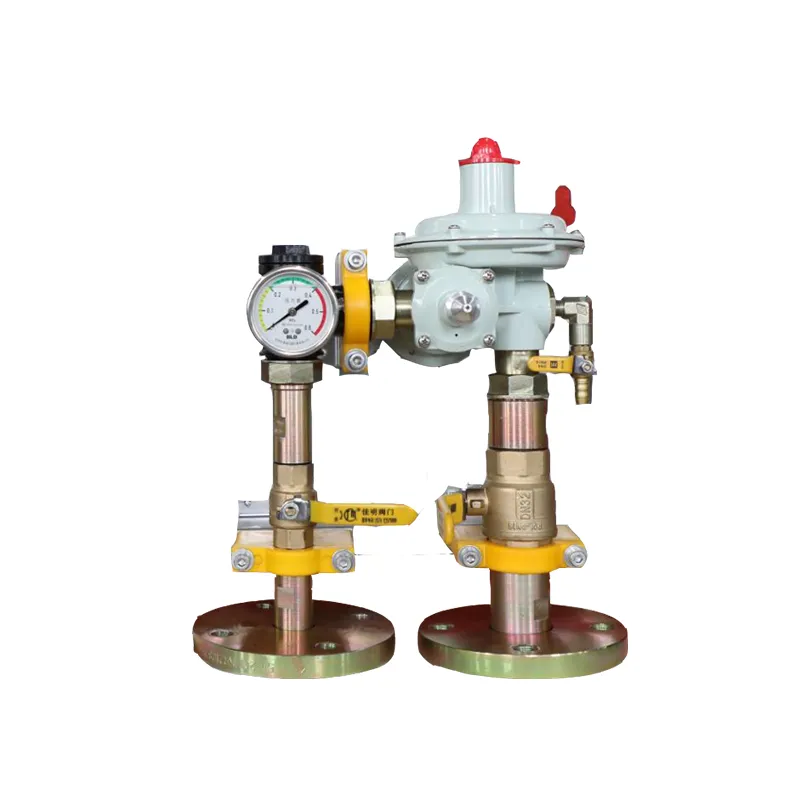
Nov . 06, 2024 09:10
Back to list
High-Performance Voltage Regulator for Enhanced Precision and Stability in Electronic Applications
Precision Voltage Regulators Ensuring Stability in Power Supply
In the realm of electronic design, precision voltage regulators play a crucial role in ensuring that circuits receive a stable and accurate voltage supply. These devices are essential for applications that require highly reliable power sources, such as instrumentation, telecommunications, and automotive electronics. This article delves into the importance, functioning, and types of precision voltage regulators, shedding light on why they are integral to the advancement of electronic technology.
Understanding Precision Voltage Regulators
A precision voltage regulator is designed to maintain a constant output voltage regardless of variations in input voltage or output load conditions. Unlike standard voltage regulators, which may allow significant fluctuations, precision voltage regulators are engineered to minimize deviations, often within a few millivolts. This level of accuracy is critical for sensitive applications where even slight voltage variations can lead to malfunctions or degraded performance.
Key Components and Functioning
At the heart of a precision voltage regulator is a feedback control loop. This loop monitors the output voltage and compares it to a reference voltage. If the output voltage deviates from the desired level, the feedback loop adjusts the control element—often a transistor or a MOSFET—to correct the error. The reference voltage is typically generated by a bandgap reference circuit, which provides excellent temperature stability, ensuring that the output voltage remains accurate across varying environmental conditions.
The performance of these regulators is often characterized by parameters such as line regulation, load regulation, and temperature coefficient. Line regulation indicates how well the output voltage remains consistent despite changes in input voltage. Load regulation measures the output stability when the load varies, while the temperature coefficient defines how much the output voltage changes with temperature fluctuations. Precision voltage regulators boast tight specifications in all these parameters, making them suitable for demanding applications.
Types of Precision Voltage Regulators
Precision voltage regulators come in several forms, each suited to different applications
1. Linear Regulators These are the most common type of precision regulators. They provide a stable output voltage by dissipating excess voltage as heat. While they are simple and produce low noise, their efficiency decreases significantly when the input voltage is much higher than the output voltage.
2. Low-Dropout Regulators (LDOs) A subset of linear regulators, LDOs are designed to operate with a small voltage difference between input and output. This feature makes them ideal for battery-powered applications, where maximizing efficiency is critical.
precision voltage regulator

3. Switching Regulators These regulators use an inductor, capacitor, and diode to convert input voltage to output voltage effectively. They can achieve high efficiencies and are suitable for applications where power loss must be minimized, despite typically producing more noise than linear regulators.
4. Programmable Voltage Regulators These modern regulators allow users to digitally set the output voltage level. This flexibility is advantageous in applications requiring multiple voltage levels from a single regulator.
Applications of Precision Voltage Regulators
Precision voltage regulators find applications across various fields
- Instrumentation In scientific instruments, precise voltage levels are crucial for accurate measurements and data collection. Regulators ensure that sensors and analog devices operate within required voltage thresholds.
- Telecommunications With the growing demand for high-speed data transmission, telecommunication equipment relies on stable power supplies to maintain signal integrity and reliability.
- Medical Devices In the medical field, devices such as MRI machines and heart monitors require precise power supplies to ensure all components function correctly, contributing to patient safety.
- Automotive Electronics With the rise of electric vehicles, precision voltage regulators are essential for managing the complex electronic systems that control everything from battery management to infotainment systems.
Conclusion
Precision voltage regulators are indispensable components in modern electronics, contributing to the stability and reliability of various applications. By ensuring accurate voltage levels, these regulators not only improve the performance of electronic devices but also enhance the safety and efficiency of systems across multiple industries. As technology continues to evolve, the advancement of precision voltage regulators will undoubtedly play a pivotal role in supporting innovations that rely on stable power supply.
Latest news
-
Safety Valve Spring-Loaded Design Overpressure ProtectionNewsJul.25,2025
-
Precision Voltage Regulator AC5 Accuracy Grade PerformanceNewsJul.25,2025
-
Natural Gas Pressure Regulating Skid Industrial Pipeline ApplicationsNewsJul.25,2025
-
Natural Gas Filter Stainless Steel Mesh Element DesignNewsJul.25,2025
-
Gas Pressure Regulator Valve Direct-Acting Spring-Loaded DesignNewsJul.25,2025
-
Decompression Equipment Multi-Stage Heat Exchange System DesignNewsJul.25,2025

